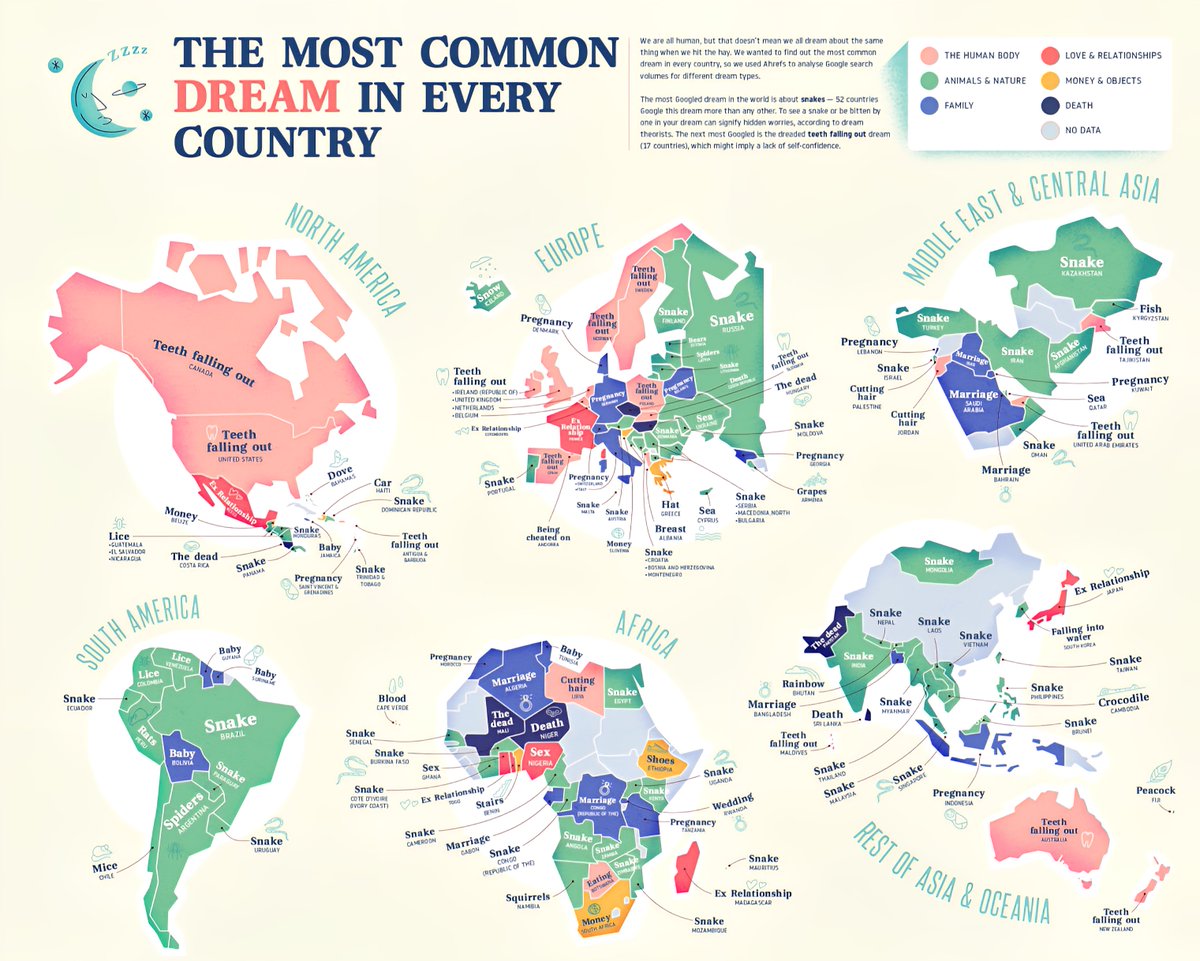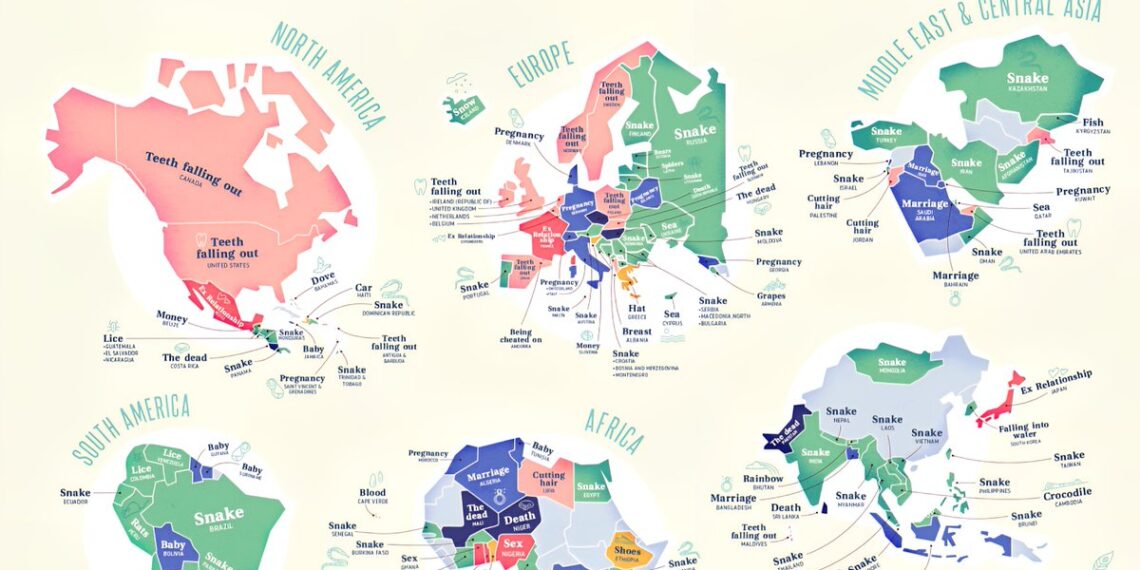Select Language:
The Most Common Dream Across Countries in 2025

1. Falling – A Universal Expression of Anxiety
Across the globe, countless individuals report dreaming about falling from great heights. This recurring motif is often linked to feelings of insecurity, helplessness, or loss of control in waking life. Whether it’s slipping off a cliff in the Swiss Alps, tumbling down stairs in a bustling city, or plummeting from a skyscraper in New York City, the sensation of falling remains a widespread phenomenon. Psychologists suggest that such dreams might reflect stressors related to personal or professional failures, or fears of failure itself.
2. Being Chased – A Deep-Seated Fear of Confrontation
Another remarkably common dream is being chased—by someone, or something, that provokes anxiety. From a person being chased through suburban streets in Texas to a mysterious creature haunting a remote village in Japan, these dreams symbolize avoidance or denial of emotional issues. Dream experts believe that such dreams serve as a mental warning sign, urging individuals to confront unresolved conflicts or fears. Cultural factors may influence the ‘pursuer’—some cultures interpret these dreams as spiritual threats, while others see them as personal stress.
3. Losing Teeth – A Sign of Transition and Anxiety
Losing teeth remains a prevalent nightmare worldwide, especially among adults. People in Brazil, Germany, and Nigeria alike have reported experiencing dreams where their teeth fall out, crack, or rot away. Psychologically, these dreams are often connected to feelings of vulnerability, aging, or concerns about appearance. Some interpretations align tooth loss with fears surrounding mortality, or apprehension about losing power and confidence during significant life changes like a career shift or personal loss.
4. Flying – Desire for Freedom and Escape
Dreams of flying, whether soaring effortlessly through clear skies or struggling to lift off, are common among all ages and backgrounds. For many, flying symbolizes a craving for independence, control, or escape from routine and pressures. In urban centers such as London and Los Angeles, people report waking up with a lingering sense of liberation after dreams about flying freely. These dreams are often associated with ambitions or lifelong desires to overcome obstacles, reflecting a universal human yearning for liberation.
5. Being Naked in Public – Embodiment of Vulnerability
Uncovering oneself in a dream is an experience shared across cultures—from Seoul to Mexico City—where individuals find themselves starkly exposed in front of others. Such dreams are typically linked to feelings of vulnerability, embarrassment, or shame. Psychologists explain that these dreams might surface during periods of self-doubt, social anxiety, or after significant life changes where one feels scrutinized. Despite cultural differences, the emotional core remains the same: a deep-seated fear of judgment and exposure.
6. Taking an Exam – Anxiety Related to Performance
Exam dreams are a common source of stress in many countries, especially among students and professionals facing high-stakes evaluations. In China, India, and the U.S., individuals often dream about forgetting answers, arriving unprepared, or failing a test. These dreams symbolize feelings of pressure and anxiety about performance, competence, or future success. Such recurring nightmares highlight the universal pressure to succeed and the fear of not living up to personal or societal expectations.
7. Water Dreams – Emotional Depth and Subconscious Mind
Water appears frequently in dreams worldwide—ranging from calm lakes to raging rivers, stormy seas, or flooded streets. Dreaming of water often signifies emotional states, with calm waters representing peace and turbulent waters indicating chaos or unresolved issues. Individuals in coastal cities like Miami and Sydney often report vivid water dreams during stressful periods. Psychologists interpret these dreams as a reflection of the subconscious dealing with emotions, relationships, or life transitions.
8. Losing a Loved One – Fears of Separation and Loss
Dreaming about losing a loved one, whether through death, separation, or abandonment, is profoundly common across cultures. From rural villages in Africa to urban jungles in the U.S., individuals experience these dreams during times of grief, separation, or insecurity. Such dreams can serve as an emotional processing tool, helping people cope with impending or recent separations, or fears of losing those they hold dear. They evoke powerful feelings of sadness, longing, and attachment.
9. Being Unable to Find Bladder Control – Fear of Loss of Autonomy
A less obvious but frequently reported nightmare involves an inability to control bodily functions, particularly bladder control. Dreamers in Scandinavian countries and Latin America often report difficulty in reaching a bathroom, signifying a fear of losing autonomy, dignity, or control over their bodies. Such dreams frequently occur during periods of stress or illness and symbolize underlying anxieties about aging, health, or personal independence.
10. Receiving Unknown Visitors – Curiosity and Uncertainty
Dreams about strangers arriving at one’s home appear worldwide, often evoking mixed feelings of curiosity and fear. In many cultural narratives, unfamiliar visitors in dreams can symbolize new opportunities, hidden fears, or aspects of oneself that are unknown. For instance, residents of rural India and urban dwellers in the U.S. alike describe dreams where strangers come knocking, prompting introspection and emotional reactions related to openness or suspicion.
As 2025 unfolds, these dreams reveal both shared human experiences and culturally specific interpretations. The universality of these themes underscores how much our subconscious mind reflects our collective and individual concerns, hopes, and fears, transcending borders and borders of consciousness.





